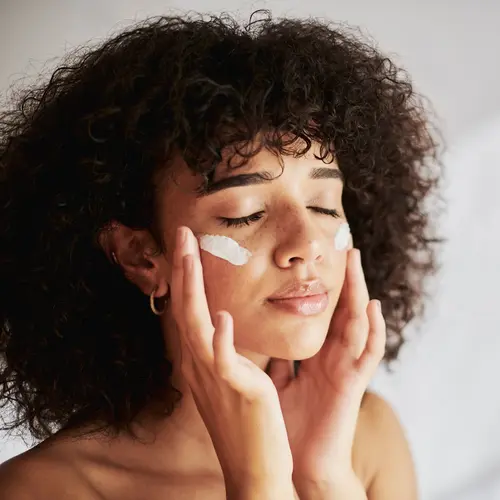Today's anti-aging face products are better than ever, thanks to advances in science's understanding of how skin ages. New technologies created from these findings help keep you looking young, smooth, and healthy.
The Science of Antiaging Creams
Past generations used skin creams that reduced the appearance of fine lines and wrinkles by temporarily plumping up the skin. Today's most advanced multitasking moisturizers and facial serums use multiple compounds to turn back the clock and change the skin at the cellular level.
"The 'gold standard' in anti-aging products," Jeffrey Dover, MD, says, "remains prescription retinoids, a form of vitamin A." Dover is associate clinical professor of dermatology at the Yale School of Medicine. "But now, over-the-counter products containing lower concentrations of retinol have been shown to be effective in reversing the signs of aging."
These skin care products typically use retinol, or vitamin A, in combination with other ingredients such as proteins and botanicals.
Soaps and Cleansers That Won't Dry Your Skin
Soaps can dry your skin. Most bar soaps contain sodium lauryl sulfate, which strips away natural oils from the skin. (Some organic soaps and brands do not.)
More recently, companies have started making "moisturizing" soaps and liquid nonsoap facial cleansers that moisturize your skin as you wash. These dual-use cleansers rid the face of dirt and bacteria and trap moisture in the outer layer of the skin.
These soaps and cleansers work by using ingredients such as hyaluronic acid, an essential nutrient that helps retain water in the skin's lipid layers. Some contain sustained-release ceramides, which help keep the skin moist. Some cleansers may contain ingredients such as benzoyl peroxide or salicylic acid to help prevent breakouts in oily or acne-prone skin.
Hexamidine is a disinfectant that's often used in the lining of disposable diapers. Because of its ability to lock in moisture, it's now being used in skin creams and moisturizers.
Differences in Men’s and Women’s Skincare Products
Men generally have thicker and oilier skin than women. They also have larger pores that can be clogged by heavier creams. But the same basic ingredients found in women's products are also found in men's products.
There are some products that are made to address specific male issues. Some shaving creams are made with moisturizers such as aloe to make the beard softer and soothe the skin. There are shaving creams that have been developed specifically for men with sensitive skin. Other creams or gels reduce "razor burn" and cool the skin after shaving.
Preventing Wrinkles With UV Protection
The best anti-aging strategy for your skin is to prevent sun damage. Dermatologists say that about 70% of the visible signs of aging can be prevented by limiting exposure to ultraviolet radiation (UV), which includes both UVA and UVB rays.
In the past, you had to apply thick, pasty zinc oxide to prevent harmful ray exposure. Few people wanted to wear that white ointment every time they ventured outdoors.
Now, there are broad-spectrum sunscreens that protect against the sun's UVA and UVB rays. They can help prevent sun damage -- patchy and uneven skin, sallowness, wrinkling, and age spots. They do not, however, eliminate signs of aging completely.
Whatever sunscreen you choose, make it part of your daily routine, just like brushing your teeth.


